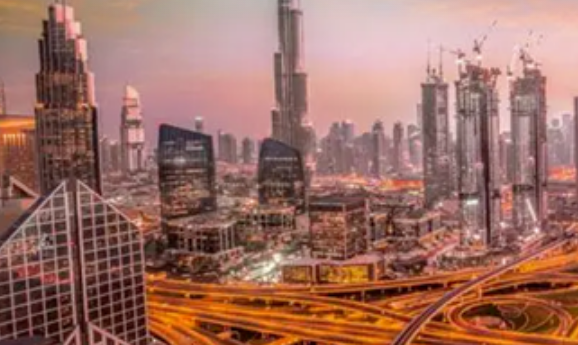Scanning the past decade of energy development, cooperation and governance in the Middle East-Arab countries
Strategic Breakthrough # 5: The role of the Middle East-Arab countries in the global energy landscape will become more important under the Ukraine crisis in 2022. The position of Middle Eastern oil producers in the global energy landscape is obvious, which mainly stems from the oil embargo initiated by the Organization of Arab Petroleum Exporting Countries (AOPEC) in the 1970s, led by Saudi Arabia, against the United States, Europe and Japan and other Western countries, resulting in the first oil crisis. The "oil weapon" has been made famous by Saudi Arabia. Coupled with the subsequent decades, Saudi Arabia continued to become the world's largest oil producer and exporter, and its position in the heart and soul of OPEC, its voice in international oil prices after the United States. However, since the 1990s, with the outbreak of the Gulf War and many geopolitical events, OPEC's oil market share has been squeezed, and the Middle East's energy status has declined. Especially since 2010, with the great success of the shale revolution in the United States, the United States has returned to the world's largest oil and gas producer, and the share and discourse power of the Middle East in the global oil and gas market has further declined.

However, since the Ukraine crisis, the "energy power" in the Middle East has been on the rise significantly, the United States, Russia, the European Union and other non-regional powers have paid more attention to Saudi Arabia, and the bargaining power and strategic autonomy of the Middle East-Arab countries have been significantly enhanced. For example, in mid-July this year, Biden set down his body to visit the Middle East, one of the important purposes is to persuade Saudi Arabia led by the Arab countries to increase oil exports and supply, calm the rising oil prices. Just before Biden left, Russian President Vladimir Putin visited the Middle East. Another example is that in late September this year, German Chancellor Schulz visited Saudi Arabia, the United Arab Emirates and Qatar in the Middle East, with the purpose of searching for oil and gas. It can be seen that the status of the Middle East in this round of global geopolitical game is constantly improving, which will have a profound impact on the global energy market and power pattern. One of the typical manifestations is the strategic adjustment of Arab countries from "looking east" in the past decade to "looking east and west" at present.
Strategic breakthrough # 6: The International Renewable Energy Agency will locate its headquarters in ABU Dhabi, UAE. The International Renewable Energy Agency (IRENA) is currently an international energy organization ona par with the International Energy Agency (IEA). The International Renewable Energy Agency (IRENA) was launched in Bonn, Germany, on January 26, 2009 with the commitment of some 80 organizations, including founding members Turkey, Egypt, India, Chile, Colombia and others. On 29 June 2009, the Preparatory Committee held a meeting in Sharm el-Sheikh, Egypt, and decided to locate the headquarters of the organization in Bonn, Germany; Vienna, Austria; or ABU Dhabi, the capital of the United Arab Emirates.
The headquarters of a global new energy international governance body is located in a country dominated by traditional energy - the UAE, which cannot but be said to be a "surprise". But that may be the genius of the UAE or IRENA leaders. On the one hand, ABU Dhabi of the United Arab Emirates, together with Dubai, the financial and trade center next to it, is a hub city in the Middle East and even Eurasia, at least in terms of location, providing convenient conditions for global new energy governance; On the other hand, as a country that has long relied on oil and traditional energy sources, if the UAE actively promotes the energy transition (in fact, the UAE has planned to invest hundreds of billions of dollars to build a "smart" and "zero-carbon" city of the future of mankind), and successfully achieves carbon peak and carbon neutrality, then what region and country in the world can not achieve the "dual carbon" goal?
Finally, it needs to be explained that the use of the expression "Middle East-Arab countries" in this paper is actually to highlight the status and role of Arab countries in the global oil and gas market and energy pattern over the past decade, as well as the great success achieved by China and Arab countries in energy cooperation, and the necessity of building a community of shared future for China-Arab energy cooperation in the next step. The article also mentioned non-Arab countries such as Israel, and used the expression "Middle East-Arab countries" in order to be comprehensive.
- ABB
- General Electric
- EMERSON
- Honeywell
- HIMA
- ALSTOM
- Rolls-Royce
- MOTOROLA
- Rockwell
- Siemens
- Woodward
- YOKOGAWA
- FOXBORO
- KOLLMORGEN
- MOOG
- KB
- YAMAHA
- BENDER
- TEKTRONIX
- Westinghouse
- AMAT
- AB
- XYCOM
- Yaskawa
- B&R
- Schneider
- Kongsberg
- NI
- WATLOW
- ProSoft
- SEW
- ADVANCED
- Reliance
- TRICONEX
- METSO
- MAN
- Advantest
- STUDER
- KONGSBERG
- DANAHER MOTION
- Bently
- Galil
- EATON
- MOLEX
- DEIF
- B&W
- ZYGO
- Aerotech
- DANFOSS
- Beijer
- Moxa
- Rexroth
- Johnson
- WAGO
- TOSHIBA
- BMCM
- SMC
- HITACHI
- HIRSCHMANN
- Application field
- XP POWER
- CTI
- TRICON
- STOBER
- Thinklogical
- Horner Automation
- Meggitt
- Fanuc
- Baldor
- SHINKAWA
- Other Brands




































































































































